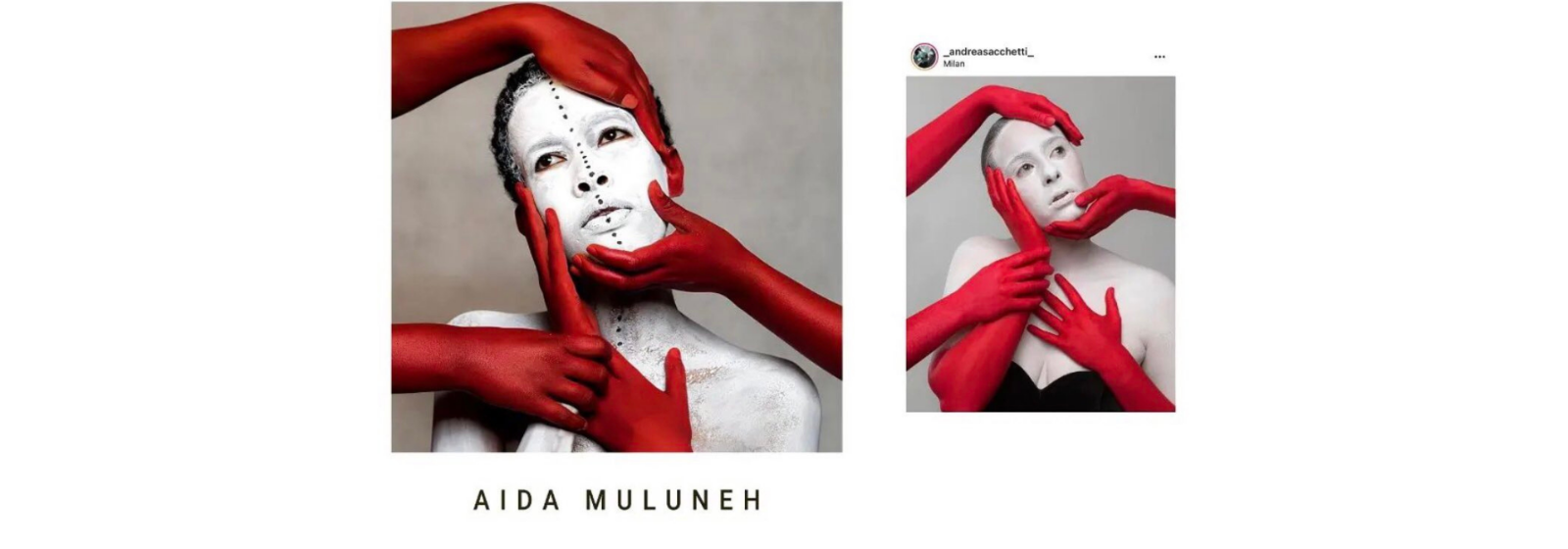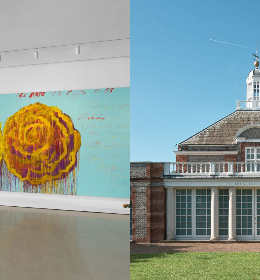This time, the media African Women in Photography has revealed that an Italian student taking part in a photography festival in Milan has been discovered to have recreated a famous picture by Ethiopian artist Aïda Muluneh. Muluneh's photo depicts a woman's face in white paint with hands surrounding her slightly tilted head and far gazing eyes.
As you can see here with the picture on the right, that of student Andrea Sacchetti, there is very little difference with the original, apart from a plainer looking staging and the model looking right instead of left.
Behind the two pictures, a very similar idea : illustrate Dante's Inferno. Now, beyond the seemingly lazy intellectual process on behalf of the Italian student, the real problem is that he did not give any credit to Aïda Muluneh or asked for her permission to recreate her work.
The festival that exhibited the student's work admitted that two photographs are identical, but declared in an Instagram post that has since been deleted, that there was no intention to plagiarize the original work. But nobody was really fooled by this, as the chances of it being an innocent yet incredible coincidence are just that, incredible, impossible to believe.
On Twitter, Aïda Muluneh had this to say about her work being plagiarised: "I take this quite personally, not just for me, but imagine for other photographers and artists who nobody knows, or who are trying to come up, who face the similar challenges….It’s still a conversation that needs to continue. Just because there’s been one post shared and a couple of messages sent, it’s not the end of the conversation."
In addition to the scandal that this created, this brought up the touchy and very current subject of certain black and African artists getting no credit for their work, sometimes having it copied like in the present case.









